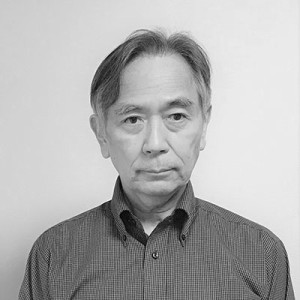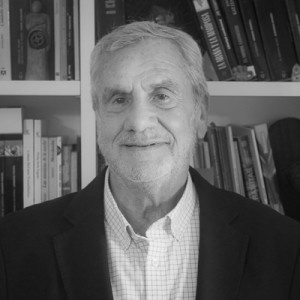Talks On Psychoanalysis
2020-10
Episodes

Thursday Oct 29, 2020
Thursday Oct 29, 2020
In this episode Dr. Kenichiro Okano displays how shame and social phobia could manifest differently between the Eastern and the Western countries, and investigates them from a psychoanalytical point of view. With his personal history of becoming a bicultural psychiatrist and psychoanalyst in the United States and in Japan, he considers that while passivity and non-action induced by shame can be misunderstood in Western culture, it can potentially exert some paradoxical power and influence, at least in the Japanese society. In its conceptualizations, the dissociation construct plays a central role, consistent with its research and clinical experience.
Dr Kenichiro Okano is a Japanese psychiatrist and psychoanalyst, and professor of Clinical Psychology at Kyoto University Department of Education. He is a training and supervising analyst in the Japan Psychoanalytic Society. He is the author of 26 books on psychoanalysis, dissociative disorder, and neurobiology. In 2016 he won The Japanese Psychoanalytical Association’s Distinguished Publications Award.
This episode is availablealso in Japanese

Friday Oct 23, 2020
Friday Oct 23, 2020
In this episode we’ll present the work of a psychoanalytical peer group. A “peer group” is made up of colleagues who choose to work together to explore a certain topic or to achieve a specific goal.
Sophia Group consists of five members from different republics that emerged after the dissolution of Yugoslavia. The goal of this group is to try to dream in the group and work all material out to be able to hold the group and use it as a container for various experiences that the members of the group have.
In this podcast, one of the members of the group introduces it with general remarks on goals and processes in the group. Next Dr. Giovanni Foresti talks about his experiences with the group as its organizational consultant. Last one to talk is Dr. Paolo Fonda who emphasizes his experiences with the dissolution of the Yugoslavia and war traumas that emerged from it. He also talks about how such groups can serve broader social purpose.
We hope in this way to show how group work can be used to help people overcome their differences and prevent bloody conflicts such as Yugoslavian one, and also trauma healing processes after such events.

Tuesday Oct 13, 2020
Tuesday Oct 13, 2020
In this episode, Carlos D. Nemirovsky presents an excerpt from his latest book: “Winnicott and Kohut on Intersubjectivity and Complex Disorders. New perspectives for Psychoanalysis, Psychotherapy and Psychiatry”.
This book suggests that we need conceptualizations that encompass new clinical phenomena observed in present-day patients, considering that the traditional definitions of basic psychoanalytic notions are no longer comprehensive enough, due to the complexity of scientific developments within and beyond the psychoanalytic field. From this perspective, clinical practice with complex patients can particularly benefit from Winnicott and Kohut’s ideas, for these authors see each patient as unique, and are in direct contact with empirical facts.
Carlos D. Nemirovsky is a Training Analyst, Supervisor and President of the Buenos Aires Psychoanalytic Association. He is Professor of Psychoanalysis at the Institute of Mental Health, Full Member of the IPA and Member of the International Association for Relational Psychoanalysis and Psychotherapy. He is author of numerous articles and books and has published in the APdeBA journal Psychoanalysis, and online in www.aperturas.org and www.psicoterapiarelacional.es.
Intersubjectivity and Complex Disorders.New perspectives for Psychoanalysis, Psychotherapy and Psychiatry.Routledge, London, 2020.
This episode is available also in Spanish

Wednesday Oct 07, 2020
Wednesday Oct 07, 2020
In this episode, Marie-Thérèse Khair Badawi presents her paper: “Being, Thinking, Creating: When War Attacks the Setting and the Transference Counter-Attacks”.
This text, published in 2011 concerning the attack of the psychoanalytical setting in war conditions, has revealed the interest of many psychoanalysts during the Covid-19 pandemic which attacks also the setting. The questioning trying to find an issue in a situation of war where the psychoanalysts and their patients are facing the same trauma against the unpredictable which attacks the invariance of the setting, seems to be a similar problematic in these two traumatic states and … even maybe to many others!
Marie-Thérèse Khair Badawi PHD, is Training Analyst of the International Psychoanalytical Association, member of the European Psychoanalytical Federation, of the Paris Psychoanalytical Society, co-founder and first President of the Lebanese Association for the Development of Psychoanalysis, the first IPA study group in an Arab speaking country. She is Professor Researcher at Saint-Joseph University of Beirut. Author of numerous publications translated from French to several languages among which one german translation was selected and many published in the Revue Française de Psychanalyse and the International Journal of Psychoanalysis. She has studied in depth themes on war, trauma, incest and sexuality, specially female sexuality and sexual identity. Her PHD thesis "Le désir amputé” published at L'Harmattan, Paris, 1986, is considered by UNESCO as one of the first reliable studies on female sexuality in the Middle East.
This text has been published in ten different languages and the version you can listen to in the podcast has been reduced for privacy reasons. For a complete reading of the paper please refer to:
Badawi, M.-T. (2011). Being, Thinking, Creating: When War Attacks the Setting and the Transference Counter-Attacks. Int. J. Psycho-Anal., 92(2):401-409.
Badawi, M.-T. (2011). Être, penser, créer : quand la guerre attaque le cadre et que le transfert contre-attaque. Rev. Franç Psychanal, 75(4):1035-1043.
"Le désir amputé"L'Harmattan, Paris, 1986.
This episode is available also in French and Italian